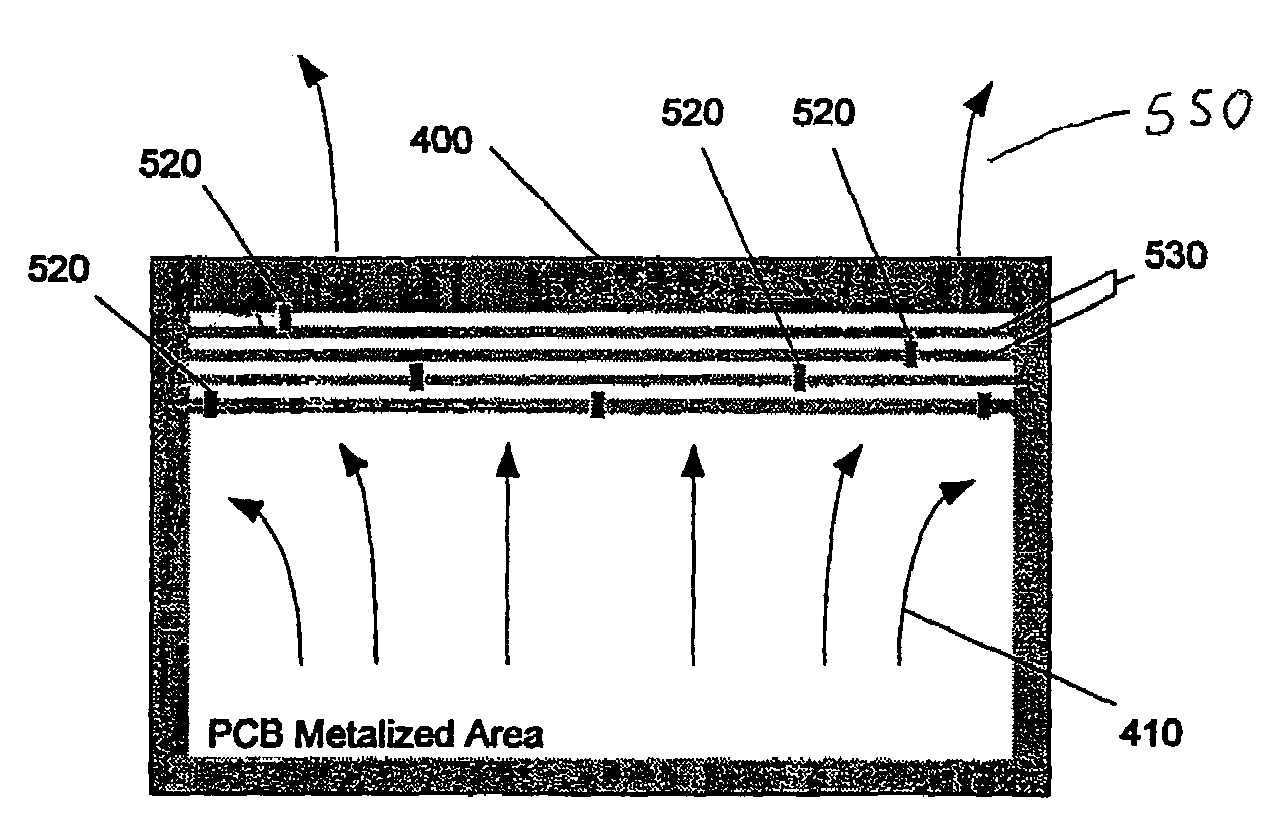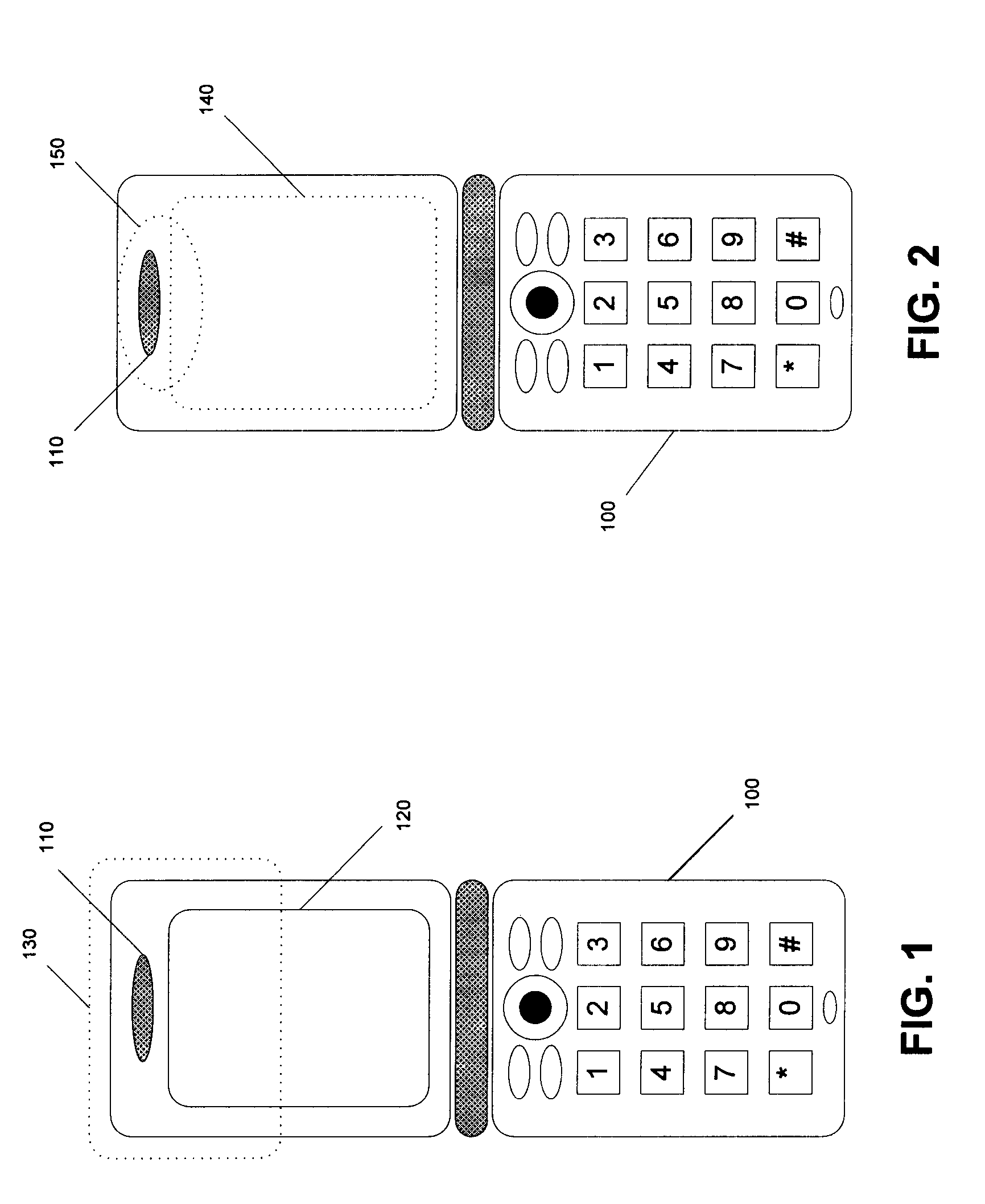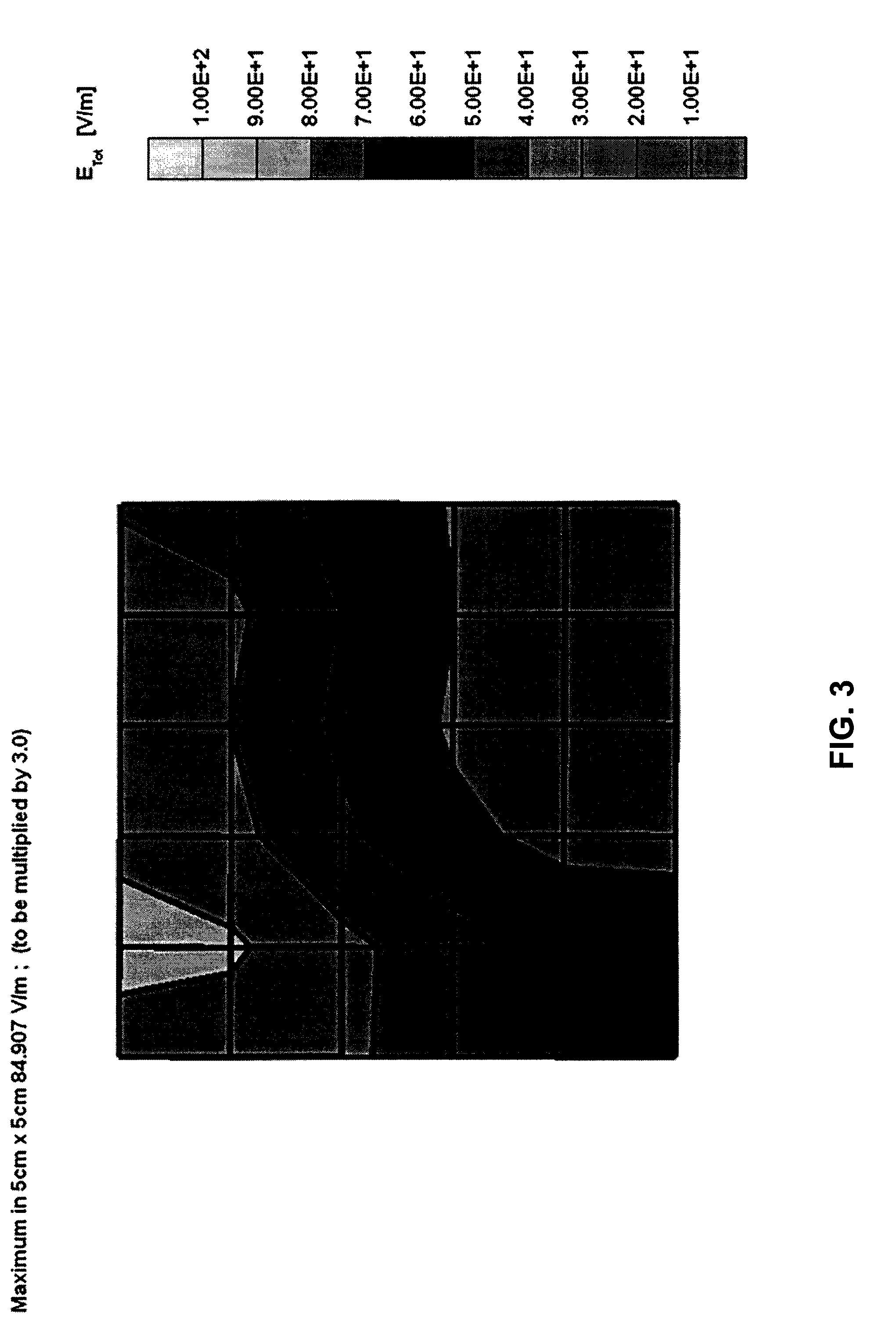Reduction of near field electro-magnetic scattering using high impedance metallization terminations
a technology of metallization termination and high impedance, which is applied in the direction of cross-talk/noise/interference reduction, waveguide type devices, line-transmission details, etc., can solve the problems of unfavorable electro-magnetic field scattering and more likely to interfere with hearing aid devices, so as to reduce the electro-magnetic field scattering, high conductivity area, and high impedance
- Summary
- Abstract
- Description
- Claims
- Application Information
AI Technical Summary
Benefits of technology
Problems solved by technology
Method used
Image
Examples
Embodiment Construction
[0012]In a related patent application, a high impedance translucent coating was used to attenuate RF surface waves (electro-magnetic scattering) over a desired region. Such a configuration is effective for attenuating the electric field in the near field region. It also attenuates the generation of surface currents in that region. For improved antenna performance, it may be desirable to allow surface currents to flow on a region of the mobile phone such as the top portion of a flip phone. However, these currents generate scattered electro-magnetic fields at abrupt discontinuities of the PCB and other metallized areas.
[0013]As part of hearing aid compatibility (HAC) assessment, near-field components of electromagnetic fields are measured. These components comprise electric and magnetic fields.
[0014]FIG. 1 is an illustration of a typical flip type mobile phone 100 showing an outline of a near field scan area 130 in the top-flip around the speaker component 110 and partially encompassi...
PUM
 Login to View More
Login to View More Abstract
Description
Claims
Application Information
 Login to View More
Login to View More - R&D
- Intellectual Property
- Life Sciences
- Materials
- Tech Scout
- Unparalleled Data Quality
- Higher Quality Content
- 60% Fewer Hallucinations
Browse by: Latest US Patents, China's latest patents, Technical Efficacy Thesaurus, Application Domain, Technology Topic, Popular Technical Reports.
© 2025 PatSnap. All rights reserved.Legal|Privacy policy|Modern Slavery Act Transparency Statement|Sitemap|About US| Contact US: help@patsnap.com



